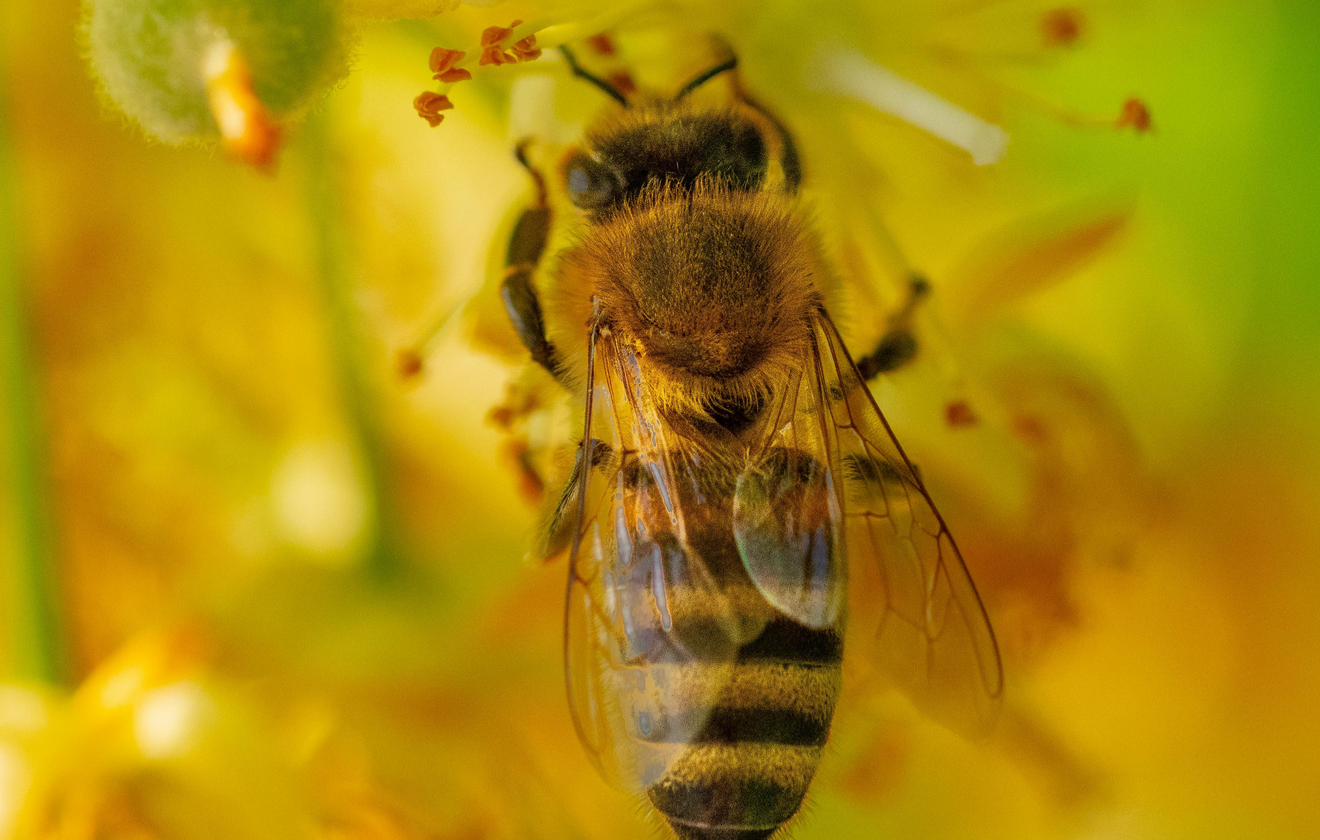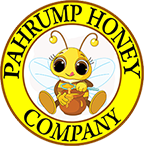
Bees Deserve the Buzz
Everyone knows honey bees make honey, but their contributions hardly end there – one-third of the U.S. diet is derived from insect-pollinated plants and honey bees are responsible for an impressive 80 percent of that process. Bees are critical to the health of our planet and food chain, so Pahrump Honey Company is careful to apply best practices that support bee health.
Don’t Worry, Honey
Supporting bee health means supporting bees. Eating honey is not harmful to bees because producers promote best practices that support bee nutrition, well-maintained apiaries, and the appropriate application of pest control. At Pahrump Honey we pay special attention to clean forage and hive placement for the sustainable production of honey. We are committed to ensuring the honey you love is sustainable today and for future generations. This begins with healthy bees and extends to protecting the natural resources they depend on. That way, you can feel good about each drop and drizzle of our honey you enjoy.
Pollinator Problems
The not-so-sweet news, beekeepers are experiencing higher than average losses. This bee health decline has been linked to a variety of factors: pesticides, pests and diseases, and forage and nutrition. This, and the next, generation of beekeepers are key to mending this sticky situation.
Five Ways You Can Help the Bees
Honey bees, beekeepers and the honey industry are direct contributors to the success of American agriculture. Today, the honey industry faces many challenges, such as hive loss, drought, colony collapse and shrinking forage areas. Here are a few ways you can help the honey bees:
- Plant bee-friendly flowers and flowering herbs in your garden and yard.
- Reduce or limit the use of chemicals and pesticides to treat your lawn or garden while plants are in bloom.
- Bees are thirsty. Put a shallow basin of fresh water with marbles or rocks in it for the bees to land on outside your home.
- Learn how to be a beekeeper with sustainable practices.
- Donate to an organization dedicated to helping protect and promote honey bees and other pollinators.
